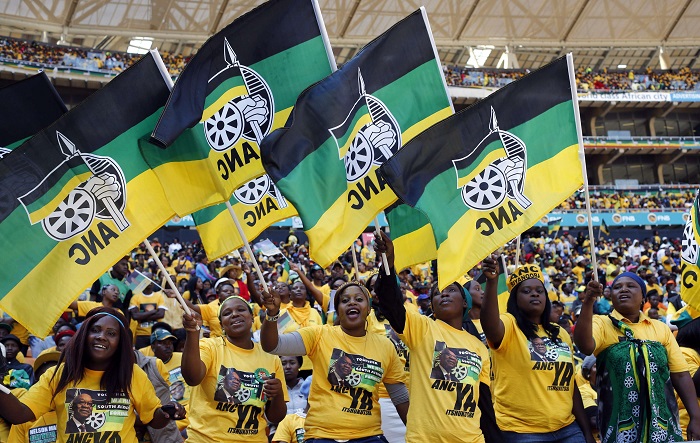Claims that nearly two decades ago the African National Congress (ANC) was in such financial difficulty that it planned to sell drugs to fund its 1999 election campaign were revealed in the Western Cape High Court on Wednesday.
This allegation was contained in a statement made by a former member of an elite investigative unit set up by then-president Nelson Mandela.
The member said another ex-member of the unit, Abraham Smith, had made the claims.
“He asked me if I knew why [an informant] was being pushed to infiltrate the drug scene so fast.
“I did not answer him, but he informed me that the reason was the fact that the African National Congress was in financial difficulty and that they required money urgently for the 1996 elections,” the statement said.
Drug claims
The member who made the statement said she understood this to mean that the informant was going to sell drugs “to get finances for the ANC”.
Her statement, made two decades ago, was read out in court on Wednesday in a civil trial brought on by Major-General Andre Lincoln.
In 1996, Mandela had appointed Lincoln to head up a special presidential investigative task unit, which would operate separately from the police and report to Mandela, former deputy president Thabo Mbeki and then minister of safety and security Sydney Mufamadi.
Lincoln was tasked with, among other matters, investigating mafioso Vito Palazzolo and his links to government officials, police and businessmen.
He was previously arrested when criminal allegations against him and others in the presidential investigative unit then surfaced.
Lincoln is now claiming R15m in damages from the minister of safety and security (now the minister of police) for alleged malicious prosecution.
In court on Wednesday, Advocate Johann Nortje, who is representing Lincoln, read out the ex-investigative unit member’s statement.
He read it to Leonard Knipe, a former high-ranking policeman with the murder and robbery unit, who he was cross-examining.
Mafioso’s ‘protection’
The statement, which Norte read out, said that Smith had believed the presidential investigative task unit had been set up “to protect Vito Palazzolo because he finances the party and has many friends in their ranks”.
It said the investigative unit member had told Smith not to “play with his future” by making unfounded allegations as it could derail his career.
“He then said that he made provision by making copies of each document in the possession of the presidential investigative task unit’s office and forwarded these documents to his contacts in Italy,” the statement said.
This was so that if anything happened to Smith, the documents he made copies of would be provided to the international media by “the Italians”.
Nortje asked Knipe about the claims that the ANC was desperate for money for its 1999 election campaign so planned to sell drugs.
Knipe replied: “There’s no evidence to that.”
Nortje said the allegations were very serious and Knipe said that would be the case if the allegations proved to be true.
However, Nortje then pointed out that if the allegations were indeed true, these would no longer be allegations, but fact.
“These are serious allegations about drug smuggling to fund the election campaign. Did you open a docket?” Nortje asked Knipe.
Broken the law
Knipe said he did not, but neither had others, who had known about the claims, including Lincoln.
Asked about the claim that the presidential investigative unit had been set up to protect Palazzolo, Knipe said he believed Lincoln and Palazzolo had been friends.
“I believe [Lincoln] had ulterior motives,” Knipe said.
Nortje said if Smith had indeed leaked documents from the investigative unit to other countries, he would have broken the law.
Knipe admitted it would have “been wrong”.
Previously in the trial, Lincoln had testified about relationships Palazzolo apparently had with officials.
“It was alleged he had on his payroll the head of organised crime, the [former arts and culture] minister Pallo Jordan and [then organised crime head and assistant commissioner] Neels Venter,” he had said.
On Wednesday Knipe testified that he had previously called Lincoln’s probes “a real disaster” because nothing had come of his investigations.
Nortje put it to him that it was because Lincoln was arrested and could not carry on with investigations and finalise his mandate as a result.
“I don’t agree… There was no evidence against any of those people,” Knipe said.
“[There were] enough competent people to take it over.”
The trial is expected to continue on Thursday when another witness is set to be called.
[Source: News24]





 WhatsApp us
WhatsApp us 

